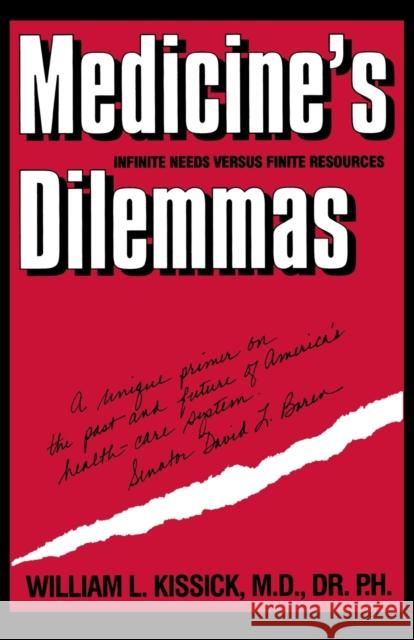Medicines Dilemmas » książka
Medicines Dilemmas
ISBN-13: 9780300059656 / Angielski / Miękka / 1994 / 208 str.
Can the United States provide a health care program that offers a comprehensive package of the highest-quality health benefits to all Americans while containing health care costs? In this important book, Dr. William L. Kissick says that it cannot: no society in the world has sufficient resources to provide all the health services its population is capable of utilizing.
Dr. Kissick was an active participant in the drafting of Medicare legislation in the 1960s and for the past twenty-five years has held joint positions in a medical school and a business school where he has specialized in health care management. Drawing on his long experience in the field, he discusses the dimensions of the current crisis, the financial and medical implications of alternative proposals--including the program put forth by the Clinton administration--and the requirements for long-term strategies. He argues that although there are no ideal solutions to health care reform, there are many significant programs at the regional, state, and local level that can serve as prototypes for the restructuring of the organization, financing, and delivery of health services. Dr. Kissick discusses some of these alternatives and suggests that after the federal government legislates a health care policy, it should be implemented through collaboration with state and local initiatives, for such programs have been built on an understanding of regional needs, expectations, and cultural diversity.











